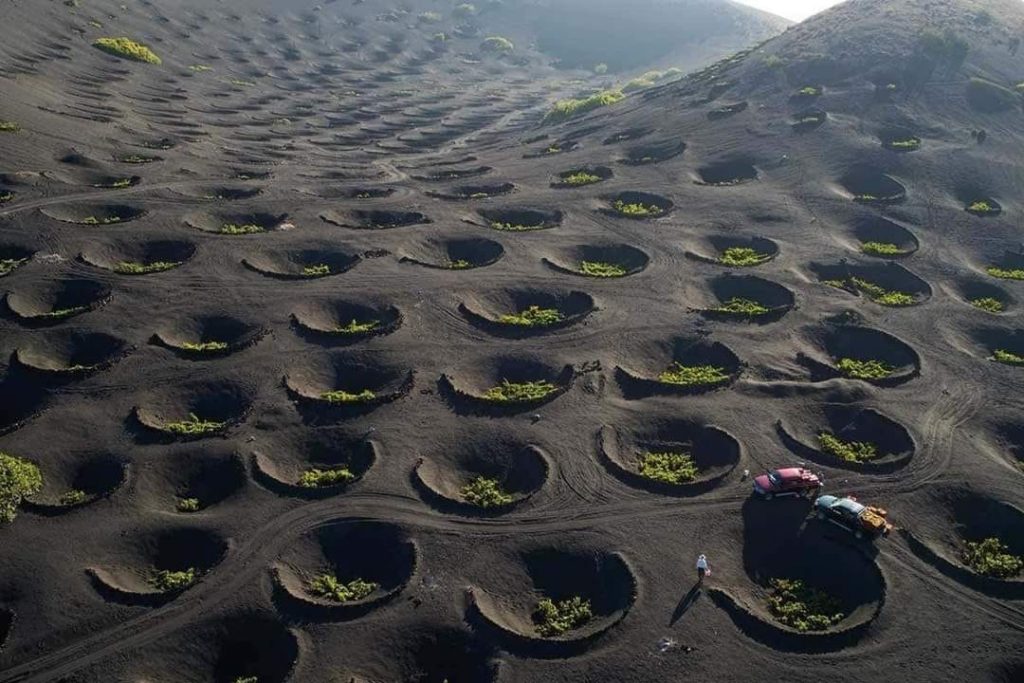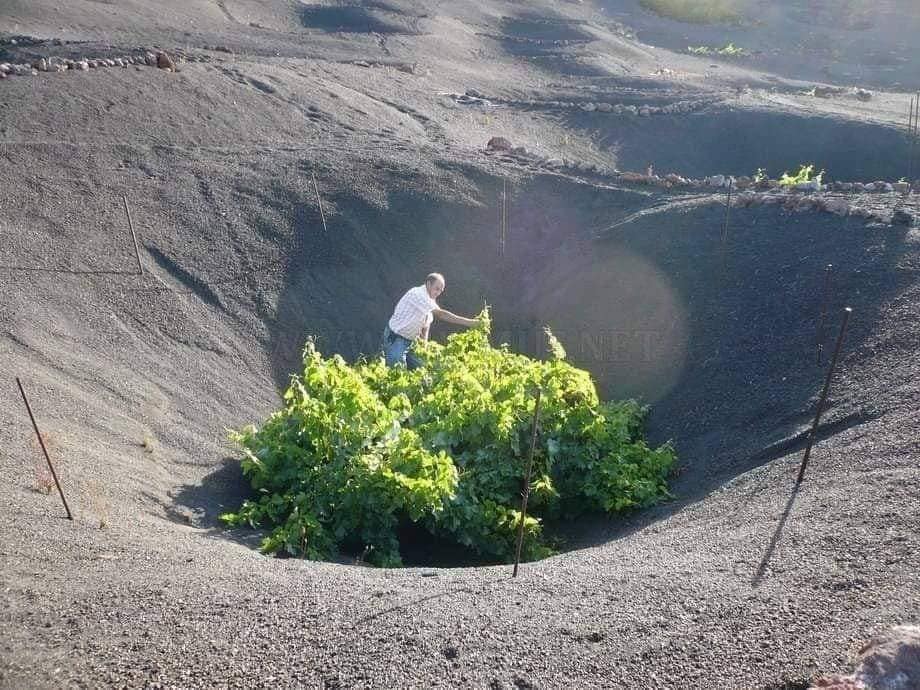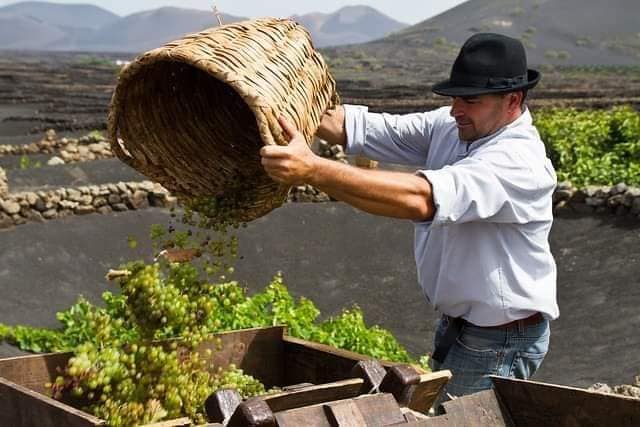In the easternmost part of the Spanish archipelago, near the northern coast of Africa and the Sahara Desert, lies the unique island of Lanzarote. This striking island, formed from volcanic eruptions 15 million years ago, is characterized by its rugged landscape of solidified lava flows, volcanic rocks, and black sand. With its minimal rainfall, averaging only about 16 days a year, and temperatures on its black plains soaring up to 50°C (120°F), Lanzarote presents a harsh and seemingly inhospitable environment.

Despite these extreme conditions, Lanzarote has carved out a remarkable niche in viticulture, producing between 400,000 to 600,000 bottles of wine annually. The island's winemakers, regarded as some of the most dedicated and innovative in the world, developed unique cultivation techniques during the 18th century. This ingenuity was particularly evident after the catastrophic eruption of the Timanfaya Volcano, which began in 1730 and continued for six years. The eruption devastated the land and forced many inhabitants to emigrate. However, those who remained discovered an unexpected boon in the volcanic soil, known locally as picón.

The picón, a type of volcanic ash, possesses exceptional moisture-retaining properties. This characteristic is crucial in an environment where water is scarce. The resilient farmers of Lanzarote capitalized on this by developing a method of dry cultivation that utilizes the volcanic soil to its fullest potential. This innovative approach involves digging shallow pits into the picón and planting grapevines within these depressions. The picón's ability to retain nighttime moisture and release it slowly during the day provides a consistent water source for the vines, enabling them to thrive even in the island’s arid conditions.
Each pit is typically surrounded by a low semicircular wall made of volcanic rock, which serves to protect the delicate vines from the strong winds that sweep across the island. These walls also help to capture additional moisture from the air, further benefiting the plants. This method not only supports the growth of grapevines but also highlights the adaptability and creativity of Lanzarote's farmers, who have turned the island’s volcanic landscape into a productive vineyard.
Lanzarote’s wines are distinctive, much like the island itself. The harsh growing conditions and unique soil impart a special character to the wines, making them highly prized both locally and internationally. The island is renowned for its Malvasía grape, which produces a variety of wines ranging from dry whites to sweet dessert wines. The volcanic soil contributes to the distinct minerality and flavor profile that sets Lanzarote’s wines apart from those produced elsewhere.

The success of Lanzarote's vineyards is a testament to human resilience and ingenuity. The farmers’ ability to adapt and innovate in the face of seemingly insurmountable challenges has not only ensured their survival but also allowed them to flourish. Today, Lanzarote stands as a remarkable example of how tradition and innovation can come together to create something truly extraordinary, transforming a barren, volcanic landscape into a thriving center of viticulture.
